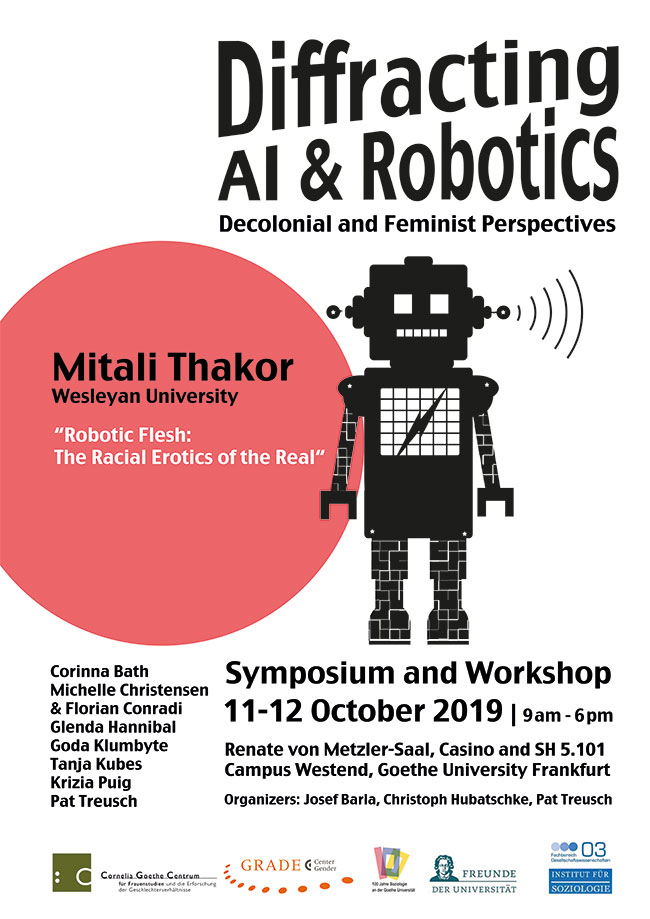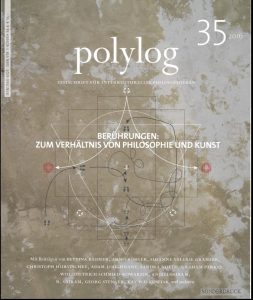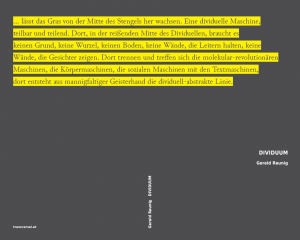Philosophische Reflexionen und Analysen bestimmter historischer und gesellschaftspolitischer Ereignisse und Entwicklungen finden zumeist sehr viel später, im Nachhinein in ihrer Ausführlichkeit statt, nicht zuletzt weil Philosophie Zeit braucht. So dauert es meistens zumindest ein paar Monate bis erste größere philosophische Betrachtungen verschiedener Ereignisse verfügbar sind. Philosophie ist selten ein aktueller Kommentar zum schnelllebigen Newsfeed. Dennoch und umso mehr spielen aber philosophische Konzepte entscheidende Rollen in der Einordnung und Kommentierung aktueller Ereignisse. Die Arbeiten von Foucault zur Biopolitik oder Mbembes Konzept der Nekropolitik sind dabei natürlich besonders aktuell, aber auch Agambens Arbeiten zum Ausnahmezustand werden momentan viel zitiert. Auch philosophische Untersuchungen zur Problematisierung von normierter Gesundheit wie sie Canguilhem oder auch Nancy vornahmen, kommen wieder verstärkt in den Fokus. Auch in einem meiner Spezialfelder, der Technikphilosophie, gibt es viele Konzepte, deren Brauchbarkeit und Überzeugungskraft sich in der momentanen Situation zeigt.
Doch es spielen nicht nur bereits ausformulierte bekannte philosophische Konzepte im momentan alles dominierenden Diskurs über den Coronavirus eine gewichtige Rolle. Denn auch wenn politische Analysen und verständlicherweise naturwissenschaftliche Expertisen und Erkenntnisse die meistgelesenen oder zumindest meist zitierten und retweeteten Beiträge in diesem Diskurs darstellen, melden sich nun auch, nachdem die Lage bereits seit einiger Zeit in immer mehr Teilen der Welt ernster wird, vermehrt Philosoph*innen zu Wort und formulieren erste Einschätzungen. Das schnelle Hot-Takes von medial besonders beliebten Philosophen (zumeist nur Männer) nicht immer zu den Sternstunden der Philosophie zählen ist allzu bekannt.
In dieser mehrteiligen Reihe möchte ich trotzdem einige dieser Reaktionen versammeln und in kurzen Beiträgen zusammenfassen und gegebenenfalls kritisieren. Lesen Sie mehr


 In November 2017 our interdisciplinary research group
In November 2017 our interdisciplinary research group 
 Der saarländische Rundfunk war damals an experimentellen Projekten höchst interessiert und versuchte insbesondere Fragen von technologischer Ästhetik zu bearbeiten (vgl. Klippert in Perec 1972, 81). Im Rahmen dieses Interesses wurden eine Reihe spannender Auftragswerke produziert, insbesonders durch die guten Verbindungen zu experimentellen Literatur Frankreichs, wurden in Deutschland noch unbekannte AutorInnen einem deutschsprachigen Publikum nähergebracht. Georges Perec, der damals noch hauptberuflich als Dokumentarist am Pariser Institut für Neurophysiologie arbeitete, und im Archv bereits mit Computern arbeitete, war von dieser neuen Technologie und ihrer Arbeitsweise höchst fasziniert. Als jüngstes Mitglied der
Der saarländische Rundfunk war damals an experimentellen Projekten höchst interessiert und versuchte insbesondere Fragen von technologischer Ästhetik zu bearbeiten (vgl. Klippert in Perec 1972, 81). Im Rahmen dieses Interesses wurden eine Reihe spannender Auftragswerke produziert, insbesonders durch die guten Verbindungen zu experimentellen Literatur Frankreichs, wurden in Deutschland noch unbekannte AutorInnen einem deutschsprachigen Publikum nähergebracht. Georges Perec, der damals noch hauptberuflich als Dokumentarist am Pariser Institut für Neurophysiologie arbeitete, und im Archv bereits mit Computern arbeitete, war von dieser neuen Technologie und ihrer Arbeitsweise höchst fasziniert. Als jüngstes Mitglied der 
 until the police banished them from the square and arrested a number of people. The “standing man” was a performance as well as a political act,
until the police banished them from the square and arrested a number of people. The “standing man” was a performance as well as a political act,  Gerald Raunig (2015): Dividuum. Maschinischer Kapitalismus und molekulare Revolution (Band 1). Wien: transversal texts.
Gerald Raunig (2015): Dividuum. Maschinischer Kapitalismus und molekulare Revolution (Band 1). Wien: transversal texts.